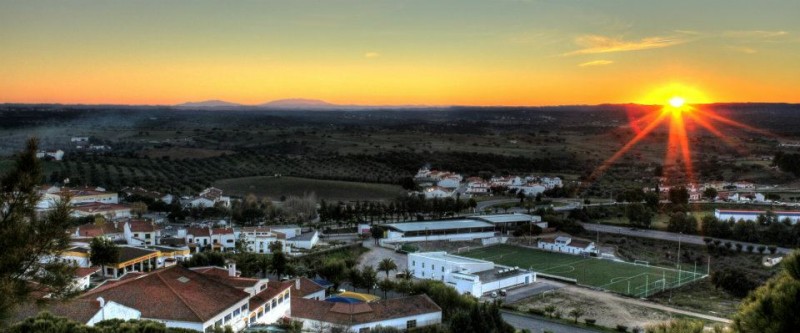The Ourique Foundation is traditionally dated 711, the year of entry of Muslims in the Iberian Peninsula. However, several factors point to a rearmost existence.
Several settlements since prehistoric times, locations documented by various archaeological campaigns are known. From the Paleolithic, Chalcolithic, Iron Age and Bronze, the proto-historic presence, Roman, Celtic, Arab, a large number of people crossed these lands.
As for the origin of the place name of Ourique, it may be between Gold (by proximity to gold-bearing holdings) and Orik (the Arabic word for misfortune, following the Moorish defeat in the Battle of Ourique).
It should also Muslims will the building of Ourique Castle, legendary military structure and that still fills memories. This castle will, in all likelihood, alternating several times between the Crescent and the Cross, depending on the sort of weapons. The reconquest of the times would have an essentially defensive watchtower role, with the advance guard the Castro da Cola. One of the most important references to this fortification is made by the Arab chronicler Ahmed Benmohmed Arrazi that in the tenth century, refers to him as one of the strongest of Beja term.
The geographical and strategic importance of Ourique and its territory, or term, is recognized over the centuries, so it has always played in the South most importantly military and commercial paper, while connecting with the valley of the Sado and the Algarve hills.
Thus constituted as one of the central components in the conquest of territory from the Muslims, having witnessed the famous Battle of Ourique.
The Battle of Ourique, Ourique occurred in the fields to July 25, 1139, it was decisive for the independence of Portugal. Led by Afonso Henriques, the Christian troops conquered with great difficulty Muslims led by the governor of Santarém.
According to legend, before the melee Christ have appeared to Afonso Henriques, guaranteeing victory, relying on religious motivations that drove our Prince. Thus, the battle that would follow was, in a way, protected by divine power. The victory across the board against the “five Moorish kings”, allowed then and in the open field of battle, Afonso Henriques was acclaimed by his army as King of Portugal.




Comments are closed.